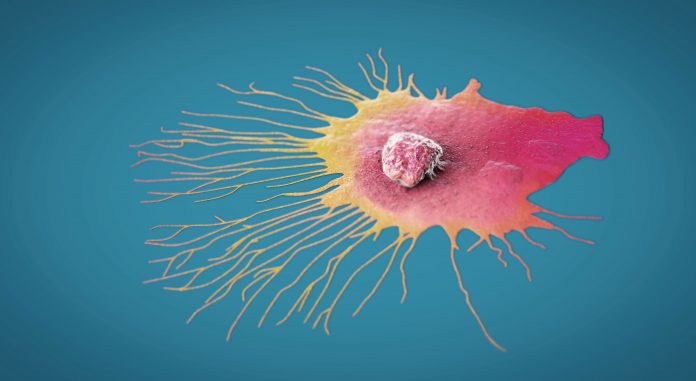
Hundreds of people with Jewish ancestry in England are being offered cancer risk-reducing options as part of a NHS genetic testing program that’s been in the works for a couple years. These people are participants who have been identified as being at increased risk of cancer through genetic testing.
Over 25,000 free saliva test kits were requested and delivered as part of the NHS Jewish BRCA Testing Program since its launch in January 2023. Around 11,000 tests have been processed, with 235 people (2.1%) testing positive for a BRCA gene mutation, which increases the risk of breast, ovarian, and prostate cancer, enabling them to seek early access to screening and preventive options—and thousands of others given reassurance that they do not carry the gene fault.
Under the program, BRCA gene testing is offered for anyone living in England, aged 18 or over, with at least one Jewish grandparent, regardless of faith, religious practice, or any other criteria.
Tests can be ordered online from the NHS and completed at home, by taking a sample of saliva and sending it off to a laboratory.
People born with altered BRCA1 and BRCA2 genes have a greater risk of developing breast, ovarian, prostate, or pancreatic cancer. And, people with Jewish ancestry are far more likely to have inherited faulty BRCA genes than the general population.
For example, one in 40 Ashkenazi Jews and around one in 140 Sephardi Jews have a faulty BRCA gene, compared to around one in 250 of the U.K. general population. Research also shows that up to 40% of ovarian cancer cases, and 10% of breast cancer cases in the Jewish community are associated with a BRCA gene fault.
Participants who are found to have altered BRCA genes are given early access to NHS cancer detection services such as mammograms or MRI scans. They may also be offered preventative surgery or medication, and advised to make risk-reducing lifestyle changes.
NHS England developed its program in partnership with charities Jnetics and Chai Cancer Care, who “have run highly successful engagement campaigns to raise awareness in Jewish communities, encouraging over 25,000 people to come forward for a free test in the first two years.”
Sami Webber, a 33-year-old bookkeeper from Hertfordshire, tested positive following her mother passing away from cancer and has since had two daughters through pre-implantation genetic testing. She said, “I feel like my mum gifted that to me, and what is in our control has been controlled. Neither of my daughters have an altered BRCA1 gene. That now ends in my line of generations through my side of the family. I am taking all the steps I can so that I can be there for my children and their children if they choose to have them in the future. I will only forever feel grateful for this test.”
The U.K.’s Minister for Public Health and Prevention, Andrew Gwynne, said, “For the 11,000 people who have tested, the NHS Jewish BRCA Testing Program provided reassurance and education around the risks of cancer. But for 235 of those people, it gave them vital extra time to make informed decisions around lifestyle choices and treatments.”





